Germany
Learn the most important information about the destination country for your time in Germany
Germany is a federal state in Central Europe. It has 16 federal states and is constituted as a free, democratic and social constitutional state. Founded in 1949, the Federal Republic of Germany is the latest manifestation of the German nation state first established in 1871.
Facts about Germany
Capital City
Berlin
Population
83.2 million
Surface Area
222,197.37 mi² or 357,592 km²
Continent
Europe
Official Language
German
Currency
Euro (EUR)
Emigrating to Germany: An overview of the political system
The Federal Republic of Germany is a federal state and follows a parliamentary model of democracy. According to the Basic Law, all state power emanates from the people. During an election period, the people transfer this power to the parliaments (the Bundestag and the state parliaments).
State power is divided into legislative (law-making), executive (executing) and judicial (adjudicating) powers. This separation of powers is a fundamental component of every democracy and is enshrined in the Basic Law, Germany's constitution. Parliaments belong to the legislative branch, while governments belong to the executive branch. The judiciary plays a central role, as judges at the state and federal courts are independent and rule exclusively on the basis of the law. The Federal Constitutional Court is the highest German court and monitors compliance with the Basic Law. The decisions of the 16 constitutional judges are binding for all other state bodies.

Climate in Germany: Important information for emigrants
Germany has a temperate climate, which is characterized by the transition from the Western European maritime climate to the Eastern European continental climate. In the North German Plain and on the North Sea and Baltic Sea coasts, summers are pleasantly warm and winters are relatively mild. In more southerly and easterly regions, the temperature differences between the seasons can be significantly greater. The warmest months in Germany usually fall between June and September with average temperatures of 21 to 25 degrees Celsius. The lowest temperatures are measured in January. Most rainy days occur in winter, but showers can also be frequent in summer, especially in the mountainous regions.

Healthcare system in Germany: Important facts for emigrants
The German healthcare system is a dual health insurance system consisting of statutory health insurance (GKV) and private health insurance (PKV). Around 85 percent of the German population is covered by statutory health insurance, while there is the option of taking out private supplementary insurance. Since the health reform of 2007, it has been compulsory for everyone who is resident or ordinarily resident in Germany to have health insurance, which has been implemented almost nationwide. The German healthcare system has two other special features: self-administration and the principle of benefits in kind in the SHI system. Health insurance funds and associations of statutory health insurance physicians are independent public corporations with self-administration. They fulfill their statutory duties independently, while the state merely sets the legal framework and exercises legal supervision. This means that they are not directly part of the state administration and the state is not subject to any technical supervision or right to issue instructions.

Emigrating to Germany: An overview of the economic situation and quality of life
Germany's gross domestic product per capita in 2023 amounted to 48,750 euros. The Gini coefficient of wealth describes the distribution of wealth. The indicator is an established, internationally comparable measure of wealth inequality. It is measured on a scale from zero to one. The higher the value, the greater the inequality. The Gini coefficient in Germany was 0.29 in 2022 (source: Statista).
Germany is one of the countries with one of the highest standards of living in the world. According to the United Nations Human Development Index (HDI) for 2021, Germany ranks 9th out of 191 countries. With a population of over 83 million people, it is the most populous country in the European Union and is one of the most densely populated countries. Around 77 percent of the population live in areas with a high or medium population density. Around 30 percent of the population live in large cities with more than 100,000 inhabitants, of which there are 80 in Germany. The cities have a great attraction for travelers, with Berlin in particular attracting many visitors and continuously setting new records for overnight stays. Compared to other European cities, the metropolis with 3.8 million inhabitants ranks third in absolute overnight stays, behind London and Paris.

National holiday
Day of German Unity
Entry requirements
In principle, entry into Germany is only possible with a valid identity document, which must be valid for at least three months at the time of the planned departure from Germany and should have been issued within the last 10 years. If necessary, documents must be presented that prove the purpose of the stay and the circumstances of the stay. In addition, it may be necessary to prove that sufficient financial means are available to cover living expenses during the stay and to finance the return journey. The amount of funds required depends on the type and duration of the stay; there are no fixed daily rates.
It is recommended that you take out health insurance before your trip, which also covers transportation back to your home country. Foreigners who are not nationals of an EU/EEA country must note that, in the case of multiple entries and longer stays, the stay in the Schengen area is limited to a maximum of 90 days per 180-day period. For longer stays, e.g. to study or work, other regulations often apply. There is no legal entitlement to enter the Schengen area. The responsible border control points of the Schengen states check the entry requirements in accordance with the Schengen Borders Code and decide whether to grant or refuse entry.

The most popular federal states and cities for immigrants to Germany
FAQs for emigrating to Germany
Where can I find relevant information about my country of entry and the entry regulations that apply there?
We have compiled destination country information as well as entry requirements and customs information for many countries in the Relocation Service section of our website and are constantly expanding this section.
Can I use my own container that I already own for the move with DACHSER & KOLB?
For every removal, which we at DACHSER & KOLB always offer as a door-to-door (full service) removal, a container is rented for the duration of the removal. We therefore do not offer the option of using your own container.
Who is responsible for my move abroad and the services I need there?
As a FIDI member, we work abroad with selected, long-standing partners who work in accordance with our service standards.
Are my removal goods insured in the event of damage?
For every overseas move, we naturally cover transportation insurance at current value for the used household goods and personal belongings
What types of transportation do you offer for overseas relocation?
It is generally possible to carry out overseas removals via air freight or sea freight. In the case of sea freight, it is possible to ship the removal goods as additional cargo (“LCL shipment” with Liftvan) or with a container (FCL shipment in 20 feet, 40 feet or 40 feet high cube). We will be happy to discuss which option is best for you in a personal consultation.
When and how must the move be paid for and what is the payment deadline?
You will receive an invoice a few weeks after placing the order and pay the full amount directly in advance.
Do I have to pay taxes and customs duties on my removal goods?
Removal goods can be imported tax and duty-free into most countries if you have a valid residence permit. We will be happy to check the options for importing the removal goods for your desired destination country in a personal consultation.
Are you interested in moving to Germany or another destination country?
Then don't hesitate and contact us today.
Alexander Brugger
Teamlead Customer Service & Sales - AIR&SEA













